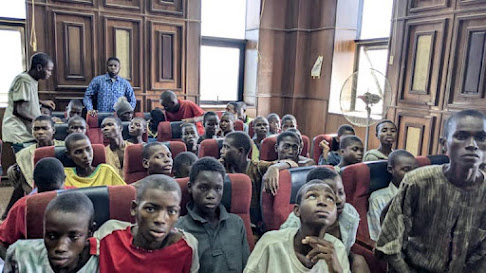By Paul Onomuakpokpo
If workers under the
aegis of the Nigeria Labour Congress (NLC) insist on their demand that they be
paid a N56,000 minimum wage, they would set our political leaders on the path
of thinking creatively about how to govern effectively. For what exists now is
a situation where our leaders shield themselves against excoriation for their
failure by directing the citizens to excuses that trigger their poor
performance despite their genuine efforts to engender good governance.
Their major excuse now
is that the nation is reeling under an economic crisis that defies an easy
solution in so far as the price of crude oil has hit hard times globally.
Bent on shirking their
responsibilities, our government whether at the federal or state levels apparently
expects the citizens to banish the thought of their welfare being improved.
Now, government officials inundate the citizens with requests to make
sacrifices. They remind the citizens that they themselves are making sacrifices
as they have reduced their legitimate pecuniary entitlements.
But like other
citizens, the Nigerian workers are by no means deceived. For the political
leaders cannot effectively persuade the citizens that they are making
sacrifices on their behalf and at the same time not feeling the pains of the
economic crisis like the citizens. Beneath the leaders’ claim of making
sacrifices, what the citizens can see is insincerity . For the leaders cannot
claim they are suffering like the citizens if their children attend schools
that are different from the public schools that the children of the workers
have been doomed by their economic condition to attend. Even if past leaders
successfully deceived the citizens, the latter are wiser now. Those who must
serve them must experience what has been their lot. The public officials cannot
feel the pain of the citizens when they are still enjoying privileges that
cushion them against the economic crisis.
Thankfully, the NLC
sees beyond the façade of the much-touted sacrifices government officials are
making and that is why it is now asking that workers’ economic plight be
alleviated by their wages being upwardly reviewed. Clearly, the NLC before now
had been agitating for pay rise. But the workers’ day on Monday only served as
an opportunity to publicly make their demand. Even without labour making the
demand, it should have been clear to government that the so-called N18,000
minimum wage being paid workers does not even have a palliative value. The high
cost of living in the country now has risen with the prices of goods more than
tripling.







.jpg)








